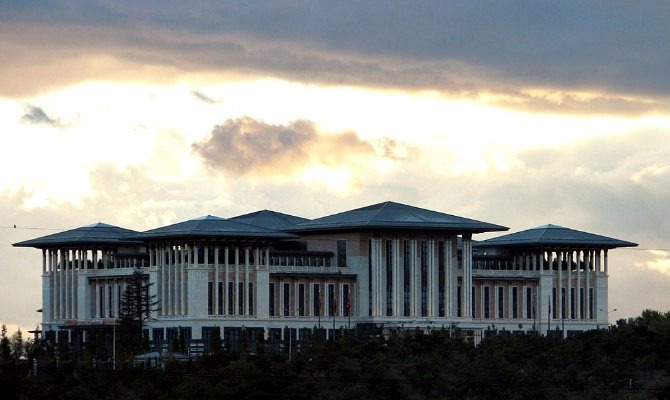Turkish President's Palace To Include A Lab Where His Meals Are Checked For Poison
Recep Tayyip Erdogan, who was elected to the Turkish presidency in August, has already earned a reputation for extravagance and has been criticized as an increasingly "authoritarian leader mimicking the habits of a sultan," according to the New York Times.
Erdogan's presidential palace has an estimated price tag of $600 million, and it is approximately 30 times the size of the White House.
Neither of these things, however, quite relays the president's wealth and self-worth as much as the recent revelation, from his personal physician, Dr. Cevdet Erdol, that "at least one of the thousand rooms" in said palace "will hold a special food analysis laboratory to test the president's meals for radioactive materials, poison, or certain types of bacteria that could be used in an assassination attempt."
According to an interview with the presidential doctor, published in a Turkish newspaper, the food analysis process includes access to a five-member emergency team that is on duty 14 hours a day.
Erdogan, who was previously Turkey's prime minister, has maintained a position of political control for more than a decade. Although he is certainly not the first world leader to take food safety precautions, the measures have also been interpreted as a sign that the president does not trust his own people.
"Such rigorous security measures are not normal for a democratic country," Kadri Gursel, a Turkish journalist, told the Times. "It just further reflects the current environment in Turkey, which is heavily polarized and has great potential for conflict and public unrest."
